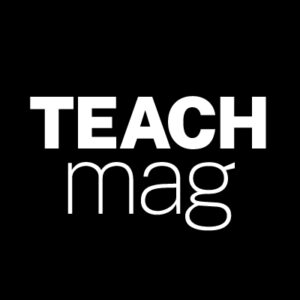Originally published in TEACH Magazine, March/April 2018 Issue
Telling a device, such as a computer or phone, what to do, can be an empowering experience for students. Coding, or programming, is a skill that encourages kids to think creatively and innovatively. Learning coding connects to other subjects like math, reading, and science as students develop computational and problem-solving skills. Attend one of the field trips listed below to get students practicing their coding skills.
Apple Field Trip
On field trips to Apple stores across Canada, K–12 students can exercise their imaginations using Apple products. The hands-on sessions include activities that allow students to explore creative storytelling through video and music, elevate ideas to action through posters or podcasts, develop multi-sensory learning, and learn the beginner fundamentals of coding and robots. The work they create may also complement existing classroom projects.
Canada Learning Code
Currently at 18,000, Canada Learning Code’s kids program has a growing number of participants. The program offers youth ages 3–12 hands-on experiences that are designed to inspire them to learn about technology in a new way. Canada Learning Code sees technology as a medium for self-expression, and as a means for changing the world. Workshops cover interesting topics such as webmaking, gamemaking, and digital generative art making. Workshops are effective and engaging because of the 4:1 ratio of learners to mentors at every gathering. Programs are available in cities across Canada, including Toronto, Vancouver, and Halifax.
Kids Code Jeunesse
For an in-class experience, learn code with Kids Code Jeunesse. Kids Code Jeunesse introduces computational thinking and computer programming with the help of free tools, like Scratch and Trinket, to students and teachers in Canadian schools and community centres. Their educational materials are developed for children from 5–12 years old. Kids Code Jeunesse members volunteer in K–12 classrooms to help teachers who are interested in integrating code into the language, arts, math, and technology curriculum. Instructors spend eight weeks with the teacher in the classroom and complete a teacher training session to ensure sustainable, long-term impact.
MakerKids
MakerKids offers after-school programs, lunchtime programs, and workshops for schools in Toronto. All programs are customized according to the school’s needs and the curriculum. They cover topics such as coding, robotics, and Minecraft. Students learn technical and soft skills, including design, engineering, coding, problem solving, and leadership. Projects include light shows, rovers, video games, apps, and night lights.
YouthSpark
YouthSpark field trips are free, two-hour events, for students aged 8 and older at Microsoft Stores across Canada. On the field trip, students learn to code, design games, and get creative with the latest apps and technologies. Students are introduced to programs such as Touch Develop, PicsArt, and Surface Pro 4 to help them explore the coding environment. Contact your local Microsoft Store, and ask for the Community Development Specialist to book a field trip, or visit the website.
TEACH is the largest national education publication in Canada. We support good teachers and teaching and believe in innovation in education.

